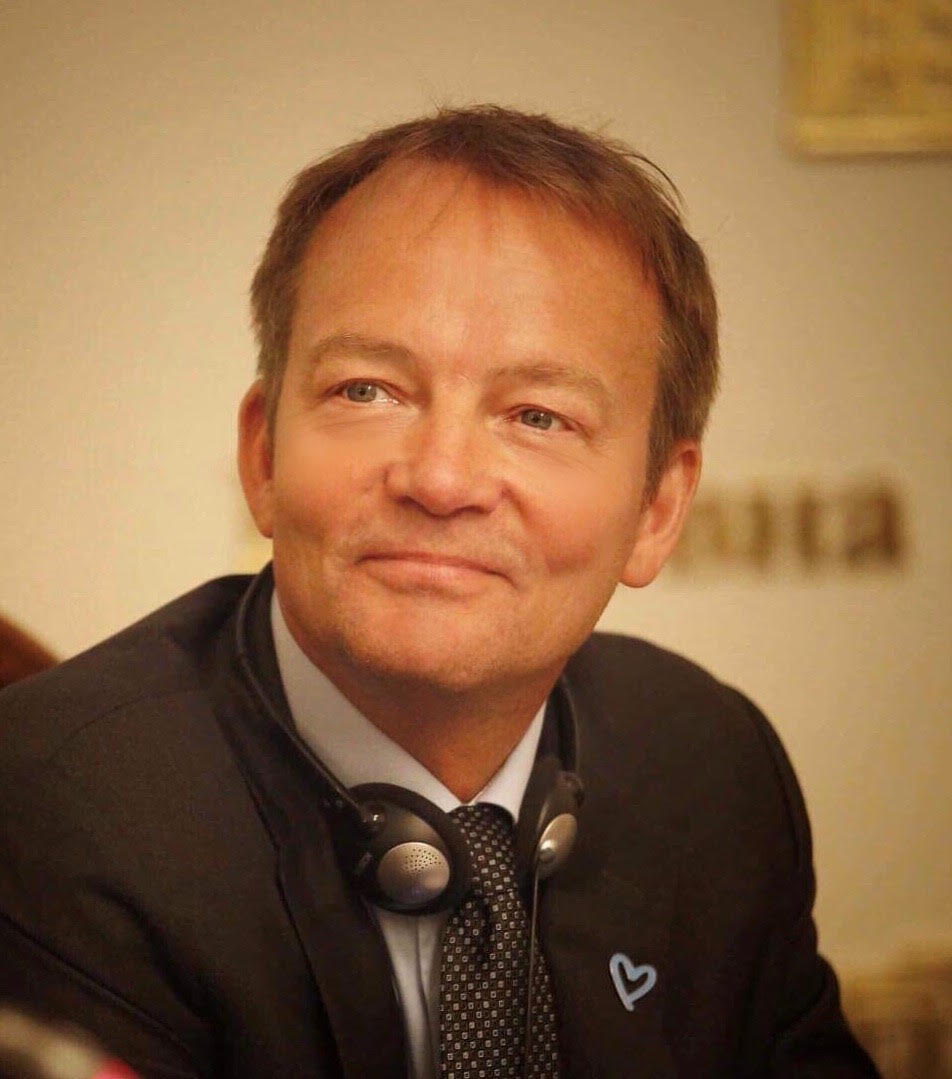The impact of France latching on to Sweden’s proposal to pursue an international joint diplomacy against human trafficking for sexual exploitation and prostitution can’t be overestimated. “There are many benefits”. That is what Per-Anders Sunesson, Sweden’s former ambassador against human trafficking between 2016 and 2021, also a board member in Realstars Sweden, is saying.
In 1999, Sweden was the first country in the world to adopt today’s sex purchase law, and compared to many other countries in the EU, Sweden has a lower proportion of women driven into prostitution. Several countries have followed Sweden and in 2016 France became the fifth country to instate a sex purchase law. In some parts, the French law has been more forceful than Swedens since it takes a broader grip to close the gaps and help to implement the law, by for example exit programmes and classes to prevent men from buying sex, by being confronted with the awkward truths for those justifying prostitution.
Prostitution means that vulnerable people are being exploited. 95% of women put into prostitution within the EU, come from other regions and continents than the country they’re currently in. Often from Eastern Europe or countries in Africa. Women are exposed to a severely impaired psychological and physiological health and are at the risk of suffering from PTSD. It’s therefore extra important, as Realstars advocates, that focus is to counteract the demand that incites human trafficking for sexual exploitation and to offer exit programmes to the perpetrators victims and thus contribute to stopping men’s assaults on women.
In 2019, Sweden’s then Minister of Foreign Affairs, Margot Wallström and the French Minister of Foreign Affairs Jean-Yves Le Drian, within the framework of each country’s feminist Foreign Policy, took the initiative to cooperate against the demand for human trafficking for sexual exploitation. The purpose with the agreement is to pursue a joint diplomacy against human trafficking for sexual exploitation and prostitution. The cooperation takes place between the department of Foreign Affairs, as well as between each country’s embassies around the world. The most important tool is perhaps the spreading of information about the Swedish and French legislation, and to show the positive consequences of the legislation when it comes to counteracting the demand on women and girls in prostitution, and that human trafficking and prostitution are clearly linked.
Sweden’s ambassador for human trafficking during 2016 to 2021 was Per Anders Sunesson and in this role he has traveled and put forward the abolitionist stance behind the so-called Nordic model. He is now also a member of the board in RealStars Sweden. Read about his view on the situation and development.
What are the benefits of Sweden and France working together with the introduction of a law against sex purchase?
Sweden has during several years in an international context, informed about the Swedish sex purchase law by highlighting the importance of, as well as taking action against the demand on women in prostitution, also offering support and to help those that are exploited in prostitution. Despite many countries lately introducing an equal legislation, Sweden has by itself, in the international context, actively propagated for a ban against the purchase of sexual services according to the Swedish model. Relatively many countries have shown an interest in Sweden’s legislation but many have also been skeptical and said, “that such legislation might work in a small, relatively homogeneous country as Sweden, but wouldn’t work in ours”. That type of argument – to dismiss the Swedish legislation on said ground – has been losing its strongpoint since France introduced an equal legislation. The importance of France latching on to Sweden’s proposal to conduct a joint diplomacy internationally against human trafficking for sexual exploitation and prostitution, cannot be overrated. The benefits are many, not least that we together can conduct spreading of information and show that the legislation works well in respective countries. Another benefit is that we together are much stronger in the international negotiation work, in putting forward resolutions etc.
Would you like to do a short assessment about the situation in some of the countries you’ve visited and contributed to spreading the Swedish view and politics.
During my four and a half year as ambassador I visited 44 different countries. In almost every visit, I, together with colleagues from our embassy in that country, had meetings with Government representatives, Members of Parliament, Police, Prosecutors and Civil Society Representatives. I would argue that we consistently were met with great interest and that our message and arguments made a big impact. Changing legislation is usually a long process and to change people’s minds is an ever longer process. My firm belief is that Sweden, with its active diplomacy against human trafficking, have “sowed seeds to change” in most countries I’ve visited. It will probably take many years in some countries before there is a change, but there are also countries that will, with big probability, introduce regulations according to the Swedish/French model within a near future. I’m thinking mainly of Spain, Scotland, England, Lithuania and Germany. I’m also convinced that when these countries change their legislation, more countries will follow.
You have gathered a lot of experience in this role. What are your biggest lessons learned and tips for your successor Anna Ekstedt?
I couldn’t have hoped for a better successor than Anna Ekstedt. Anna is extremely competent within the area, and she has many years of practical experience in working with different forms of human trafficking, not the least, human trafficking for sexual exploitation. A lesson learned in the work I’ve done, and that I’m convinced that Anna is familiar with, is the importance of working closely with civil society, both nationally and internationally. Civil society has a deep local knowledge and expertise about situations in their country. Civil Society Organizations have been a priceless partner to me and I’m convinced that they will be for Anna as well.




